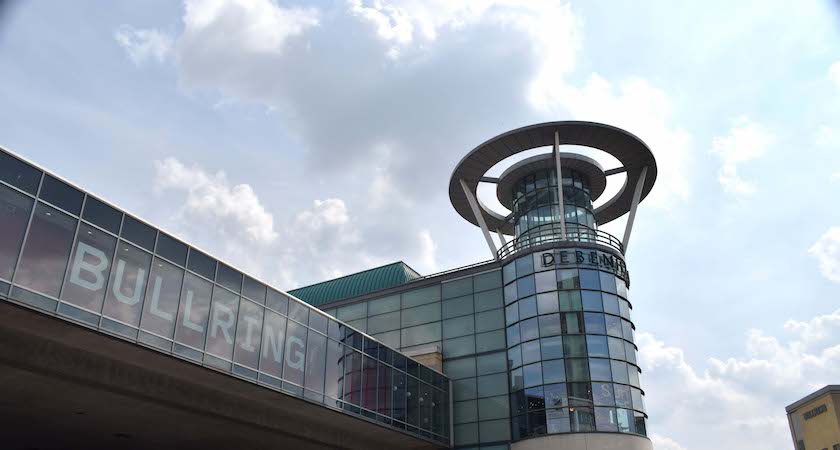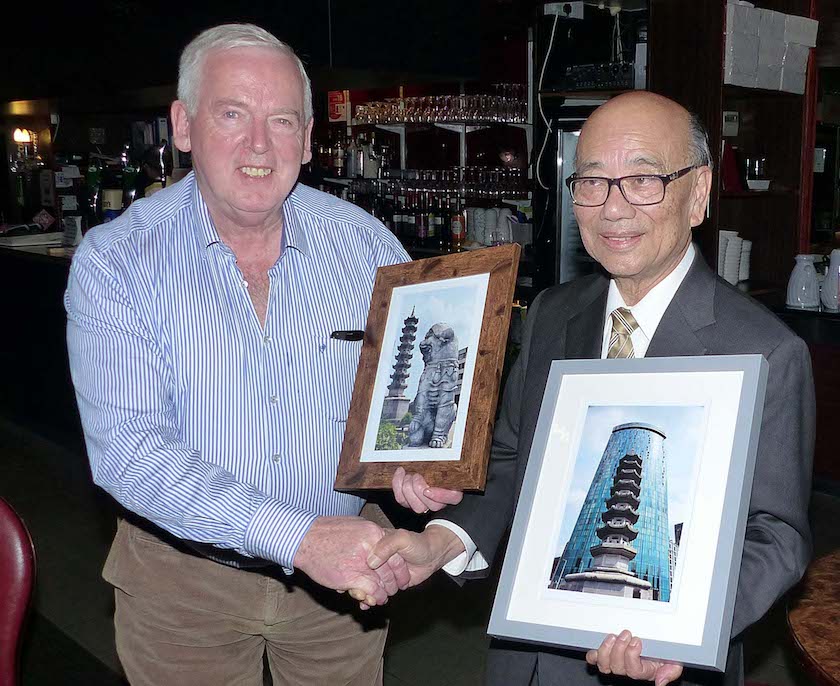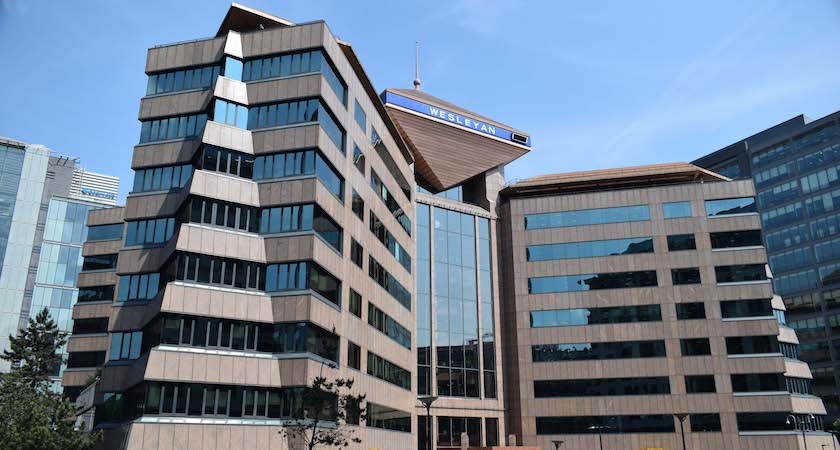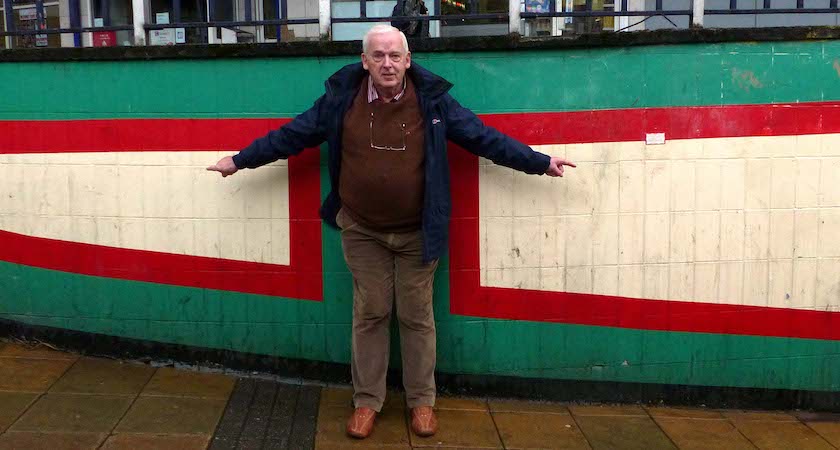IRISHMAN responsible for some of the stonework in many of Birmingham's iconic buildings and structures has been featured on the BBC.
Basil Burke is a native of Kiltimagh in Co. Mayo.
His huge portfolio includes work on the Egyptian Room at Harrods, The British Museum, Allied Irish Bank's offices in Ruislip and Glasgow, Silverstone and countless others including the Ashmolean Museum and Wolfson College in Oxford.
In Birmingham Mr Burke's stone masonry skills can be seen on buildings such as the International Convention Centre, opened by Queen Elizabeth 11 in 1991.
His work is also featured on ornate sculptures including the Water Goddess in Victoria Square (originally known as The Floosie in the Jacquzzi), which was officially opened by the late Princess Diana in 1994.
The Wesleyan and Colmore Gate offices, The Mailbox complex of shops, hotels, bars and the BBC TV and Radio studios also feature his workmanship.
 Debenhams in Birmingham' Bullring Shopping Centre, part of Basil's work on the centre. (Picture: Brendan Farrell)
Debenhams in Birmingham' Bullring Shopping Centre, part of Basil's work on the centre. (Picture: Brendan Farrell)The city's Bullring shopping centre and the construction of a Chinese Pagoda in Holloway Head - the very first of it's kind in Europe erected by Basil and his team in 1998 - are other examples of the Irishman's work.
Basil left his native Mayo at the age of 17 and came to London where his first job was a labourer at Elstree Studios.
Then followed a job as a bus conductor and later a driver with London Transport on the now famous red Routemaster buses.
Weekends and evenings were spent working at the now-closed Gresham Ballroom in Holloway Road, where Basil met and later married his wife Mae.
Later Basil and his family moved to Solihull in the West Midlands and from there he established his Burke Masonry firm.
Soon the quality of his work attracted contracts from all over the country and abroad, working on projects in Kuwait and Qatar in the mid-80s.
 Photographer Brendan Farrell presented Basil Burke and Wing Yip with framed photographs of the Chinese Pagoda, signed by each, which were then exchanged as a keepsake of the Chinese and Irish connection with the pagoda.
Photographer Brendan Farrell presented Basil Burke and Wing Yip with framed photographs of the Chinese Pagoda, signed by each, which were then exchanged as a keepsake of the Chinese and Irish connection with the pagoda.Basil retired in 2004 and moved back to live in Kiltimagh where naturally he built his own home.
He now spends his days researching and writing local history books but earlier this month flew back to Birmingham to be featured on BBC Midlands Today programme.
BBC special correspondent Peter Wilson and cameraman John Clerepanier were on hand to capture the Irishman's story as he revisited many of the projects he had worked on.
The most memorable part of the visit was a meeting with Wing Yip, the Chinese businessman who donated the Chinese Pagoda to the City of Birmingham as a thank you for the welcome he received when he and his family came to work in Birmingham in the late 1950'.
The 40ft tall Pagoda, consisting of tiers of Chinese granite and guarded by two stone Foo Dogs, took Basil and his team three months to create.
It was opened by former Birmingham MP Clare Short - whose parents' were from Co. Armagh - in June 1998.
It was the first time the pair had met.
When Basil was asked what was the significance of the green and red painted walls surrounding the Pagoda and nearby subways in Holloway Head he replied: "They are the Mayo county colours.
"I might now be back in Mayo but I've left part of Mayo here in Birmingham," he added.



